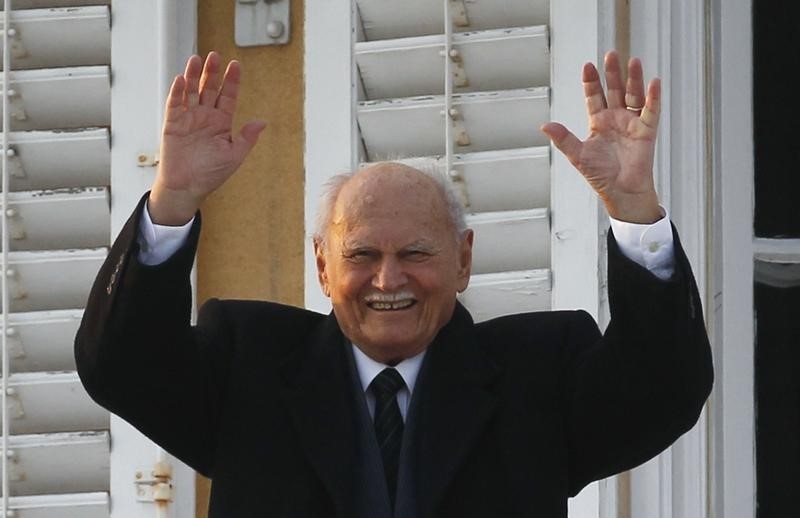By Gergely Szakacs
Arpad Goncz, who was jailed after the country's failed 1956 uprising against Soviet rule and went on to become its first post-Soviet president, died on Tuesday at 93, after what he had called a somewhat "grotesque and surreal" life of constant new beginnings.
The soft-spoken, grandfatherly Goncz, Hungary's most popular politician, held the largely ceremonial presidency for two terms, from 1990 to 2000, as Hungary shifted to a market economy and charted a path into NATO and the European Union.
He died on Tuesday surrounded by members of his family, national news agency MTI reported, citing the head of Goncz's secretariat.
Goncz rose from humble beginnings -- he had to borrow a jacket and a pair of trousers for his wedding to Zsuzsanna Gonter, who gave him four children.
A writer-translator, his ascent to the presidency mirrored the rise of dissident playwright Vaclav Havel in what was then Czechoslovakia. It came after the first free elections, in 1990.
The conservative Hungarian Democratic Forum and the liberal Alliance of Free Democrats -- both of which have since vanished -- agreed to back Goncz, head of the Hungarian Writers' Union, to mark a symbolic break with Hungary's communist past.
"Goncz was able to represent two things: the 1956 revolt and the people forced into dissidence after 1956," Gabor Kuncze, a former Free Democrat leader, told Reuters.
Goncz was jailed for life for his involvement in Hungary's 1956 revolution, which was crushed by Soviet tanks but posed the biggest challenge up to that time to communist hegemony in eastern Europe.
In prison, Goncz learnt English, which helped him make a living after being he was freed in a 1963 amnesty and began a decades-long period of what he described as "internal exile" until the change of regime in 1989.
A lawyer by education, Goncz became widely known for translating parts of "The Lord of the Rings". He also worked as a welder and an agronomist.
His political stance had already formed in adolescence. "It was indisputably Christian, humanist and left-wing," he said.
He became a founder member of one of the main opposition groupings before the change of regime, which later became the Alliance of Free Democrats.
Clashes with the conservative government in the formative years of his presidency drew calls of partisanship from some circles on the right. In his second term, Goncz became less active, saying the spoken word was his strongest instrument.
Goncz has largely disappeared from the public eye in recent years and withdrawn from politics completely.
In his farewell speech, he asked Ferenc Madl, his successor, to be aware of the social divisions created after Hungary began to build democracy.

"No one should be measured by any scale other than that of humanity," Goncz said.